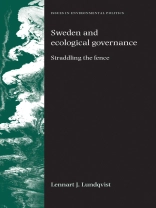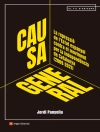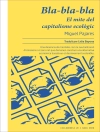This electronic version has been made available under a Creative Commons (BY-NC-ND) open access license. Sweden is seen as a forerunner in environmental and ecological policy. Sweden and ecological governance is about policies and strategies for ecologically rational governance, and uses the Swedish case study to ask whether or not it is possible to move from a traditional environmental policy to a broad, integrated pursuit of sustainable development, as illustrated through the ‘Sustainable Sweden’ programme. The study begins by looking at the spatial dimensions of ecological governance, and goes on to consider the integration and effectiveness of sustainable development policies. It analyses the tension between democracy and sustainable development, which has a broader relevance beyond the Swedish model, to other nation states as well as the European Union as a whole. In this book the author offers the latest word in advanced implementation of sustainable development by a front-runner in environmental and ecological policy. It will be useful for students of environmental politics and sustainable development researchers.
Table des matières
1. Where the grass is greener: criteria for ecologically rational governance 2. ‘Nested enterprises’? Spatial dimensions of ecological governance 3. Up or down with the ecology cycle? Strategies for temporally rational ecological governance 4. The commons of governing – the knowledge base of ecological governance 5. Governing in common – integration and effectiveness in ecological governance 6. Democracy and ecological governance – a balancing act 7. Where the buck stops: governmental power and authority in democratic ecological governance 8. Straddling the fence: on the possibility of sustainability and democracy in advanced industrial nations References Index
A propos de l’auteur
Duncan Liefferink is Senior Researcher at the Department of Political Sciences of the Environment at Radboud University Nijmegen, The Netherlands












